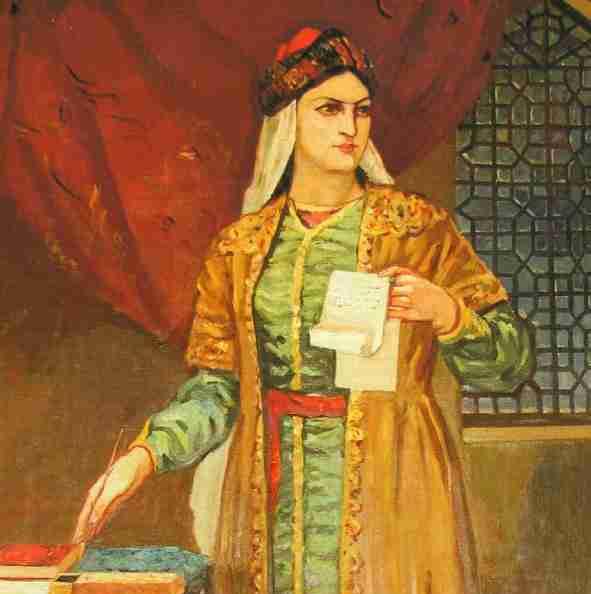Mahsati Ganjavi, nation's first great female poetess

By Layman Ismayilova
The female writers have a significant place in Azerbaijani literature, which has a rich and interesting history.
Mahsati Ganjavi, a poetess and philosopher of the 12th century, was recognized not only in her epoch, but much later also. Her works are considered valuable examples of Azerbaijani and world literature.
The great poetess of Azerbaijan Mahsati Ganjavi, who lived in the late 11th - early 12th centuries, is a bright representative of the Azerbaijani Muslim revival.
The pearl of the East literature, Mahsati became famous in Azerbaijan’s medieval literature as a freedom-loving poetess and the master of rubai or a quatrain, a poem or a verse of a poem consisting of four lines.
She spent her most creative periods in the palaces of Sultan Mahmud Saljugi and Sultan Sanjar Saljugi.
With unsurpassed talent and free-thinking, Mahsati Ganjavi’s personality gave rise to many myths and legends.
The most complete collection of quatrains are founded in the Nozhat al-Majales. About 60 quatrains of her are found in the Nozhat al-Majales.
Poetess's works are philosophical and love quatrains (rubaiyat), glorifying the joy of living and the fullness of love.
She describes love as a fragile natural feeling, which makes a man's fame higher.
Her poems reflected the people's, especially, the women's dreams of a free and happy life. Thoughts against obscurantism also hold the main place in her works. Mahsati’s poetry is distinguished by its humanism and optimism.
She commonly wrote Rubai in Persian. Her poems have been translated into different languages.
The poetess spent the most important periods of her life in the cities of Balkh, Marv, Nishapur, Herat and Marva.
Mahsati also played an active part in society, organized literature circles, and gathered young girls around her.
When she was young, Mahsati Ganjavi left Ganja for several years. She further returned to her hometown and lived there until the end of her days.
Ganjavi touched the soul and inspired many writers and poets over the years.
The 900th anniversary of works by Mahsati Ganjavi was celebrated by UNESCO in 2013.
The hall named after the poet opened at the University of Upper Alsace in Mulhouse through support of the Heydar Aliyev Foundation.
The street, a school, an academic institution, a museum, and some other places have been named after Mahsati Ganjavi.
In 2016, monument to an outstanding poetess unveiled in France.
After so many years, legendary poetess is still highly respected for her courageous poetry.
---
Laman Ismayilova is AzerNews’ staff journalist, follow her on Twitter: @Lam_Ismayilova
Follow us on Twitter @AzerNewsAz
